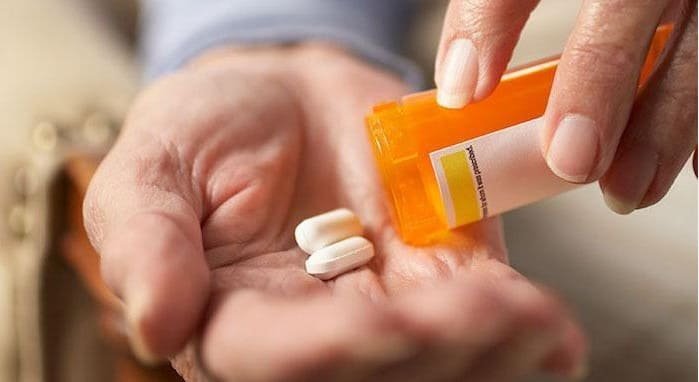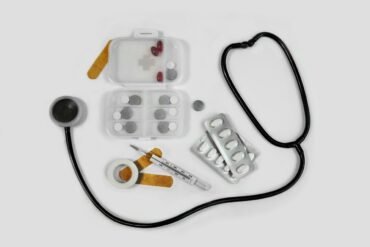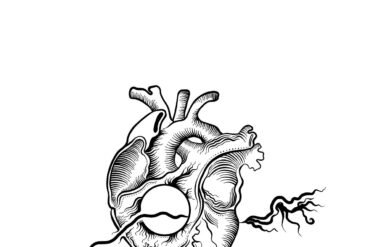Understanding Medication Expiration Dates

Table of Contents
- The Importance of Expiration Dates
- Factors Affecting Medication Expiration
- Common Misconceptions about Expiration Dates
- Proper Storage of Medications
- Safely Disposing of Expired Medications
The Importance of Expiration Dates
Understanding medication expiration dates is vital for ensuring the safety and effectiveness of the drugs we consume. These dates are not arbitrary; they signify the time when medications may begin to degrade and lose their potency. Here are a few reasons why paying attention to expiration dates is crucial:
- Efficacy: Medications are formulated to provide specific therapeutic effects when taken at the recommended dosage. Over time, the active ingredients in drugs can break down, rendering them less effective. Consuming expired medication may not provide the intended benefits, leading to inadequate treatment of your health condition.
- Safety: Expired medications can pose potential risks to your health. They might not work as expected, which may lead you to take higher doses, increasing the likelihood of adverse reactions or side effects. Furthermore, degraded medication can also harbor bacteria or fungi that can be harmful to the body.
- Guaranteed Quality: Manufacturers conduct extensive testing to determine the shelf life of medications. Expiration dates represent the manufacturer’s assurance that the medication will remain stable and retain its potency until that date, given proper storage conditions. After the expiration date, the quality and safety of the medication cannot be guaranteed.
- Proper Disposal: Expired medications should never be flushed down the toilet or thrown in the trash, as they can contaminate water sources or pose a risk to humans and animals. Understanding expiration dates allows you to dispose of expired medications safely through designated take-back programs or local disposal methods.
Always check the expiration date on your medication packaging before using any drugs, whether prescription or over-the-counter. If you find an expired medication, avoid taking it, and consult with your healthcare provider or pharmacist for proper disposal.
By understanding the importance of expiration dates, you can ensure your medications remain effective, safe, and deliver the intended therapeutic benefits. Stay informed, protect your health, and promote responsible medication use.
Factors Affecting Medication Expiration
Understanding Medication Expiration Dates
Medication expiration dates are printed on the labels of prescription and over-the-counter drugs to indicate the period during which the manufacturer guarantees the drug’s full potency and safety. While it is important to adhere to these dates for optimal effectiveness, there are several factors that can influence the stability and shelf life of medications.
- Storage Conditions: Medications should be stored in a cool, dry place to preserve their potency. Heat, humidity, and exposure to light can degrade the active ingredients, reducing their effectiveness.
- Chemical Degradation: Over time, medications can break down due to chemical reactions. This can result in the formation of potentially harmful byproducts or changes in the drug’s composition, rendering it less effective or even dangerous.
- Physical Changes: Some medications, particularly liquids and suspensions, may experience physical changes like precipitation or separation over time. These changes can affect the distribution of the active ingredients, leading to inconsistent dosages.
- Contamination: Medications can become contaminated by microorganisms if proper storage and handling practices are not followed. Contamination can alter the composition of the drug and pose a risk to the patient.
- Manufacturing Processes: Variations in manufacturing processes, such as the use of different excipients or production techniques, can impact the stability and expiration of medications. Some formulations may have shorter shelf lives due to their inherent characteristics.
It is essential to check the medication’s expiration date before taking it. Expired medications may lose their efficacy and could potentially be harmful. If you have unused or expired medications, it is recommended to dispose of them properly and avoid keeping them past their expiration dates.
Remember, always consult with your healthcare provider or pharmacist if you have any concerns or questions regarding medication expiration or safety.
Common Misconceptions about Expiration Dates
When it comes to medication expiration dates, there are several misconceptions that can lead to unnecessary waste and potential dangers. Understanding the truths behind these misconceptions can help you make informed decisions about your medications. Here are some of the most common misconceptions about expiration dates:
- Expired medications are always ineffective: Contrary to popular belief, many medications remain potent and safe to use even after their expiration dates. Studies have shown that the majority of drugs retain their effectiveness for months or even years beyond the stated expiration date.
- Expiration dates are mandated by law: The truth is, expiration dates on medications are not federally regulated in most countries. While the law requires manufacturers to label expiration dates on prescription drugs, these dates are often conservative estimates rather than relatable indicators of safety or effectiveness.
- Expired medications are unsafe: While some drugs may degrade over time, they typically do not become dangerous. The risk of serious harm from using an expired medication is minimal, especially for over-the-counter products like pain relievers or antihistamines.
- Expired antibiotics are ineffective: While it’s generally best to adhere to the recommended expiration dates for antibiotics, many studies indicate that certain types of antibiotics can retain their potency long after expiration. However, it is recommended to consult a healthcare professional before using any expired medication, especially antibiotics.
- Storing medications in the bathroom is fine: Moisture and heat from showers can degrade medications, making the bathroom one of the worst places to store them. Instead, keep medications in a cool, dry place away from direct sunlight.
- Expiration dates guarantee product quality: Contrary to popular belief, expiration dates do not reflect sudden deterioration or spoilage of medication. Rather, they indicate a date when a manufacturer can no longer guarantee the full effectiveness and potency of the product.
Understanding the truth about medication expiration dates can help reduce unnecessary waste and expenses. While it’s always advisable to check expiration dates and consult healthcare professionals when in doubt, it’s important to remember that many medications are likely safe and effective beyond what the labels suggest. Proper storage and common sense can play a significant role in extending the shelf life of your medications and ensuring that they remain suitable for use.
Proper Storage of Medications
Understanding medication expiration dates is essential for ensuring the effectiveness and safety of the medicines we consume. However, proper storage of medications is equally important in maintaining their potency and reducing potential health hazards. Here are some important guidelines to follow:
- Keep medications in their original containers: It is crucial to store medications in their original packaging, as it often contains important information such as dosage instructions, expiration dates, and potential side effects.
- Store medications in a cool, dry place: Exposure to extreme temperatures and humidity can significantly reduce the effectiveness of many medications. Therefore, it is best to keep them in a cool, dry environment, away from direct sunlight, heaters, and bathrooms.
- Avoid storing medications in the refrigerator unless required: While some medications, such as certain oral suspensions or insulin, may need refrigeration, most medications should be kept at room temperature. Refrigeration can degrade the quality of medications that are not intended to be stored in cold temperatures.
- Check for special storage instructions: Some medications may have specific storage requirements, such as needing to be stored in a dark place or in a tightly closed container. Always read the accompanying medication leaflet or consult your healthcare provider for any special instructions.
- Keep medications out of reach of children and pets: Medications should always be stored in a secure place, out of the reach of children and pets. Childproof caps are useful but should not be the sole safeguard against accidental ingestion.
- Dispose of expired or unused medications properly: When medications reach their expiration dates or are no longer needed, it is important to dispose of them properly. Follow local guidelines for safe disposal, as improper disposal can lead to environmental pollution or accidental ingestion.
By adhering to these guidelines, you can ensure that your medications remain potent, safe, and effective. If you have any doubts or concerns about medication storage, always consult your healthcare provider or pharmacist for further advice.
Safely Disposing of Expired Medications
Understanding Medication Expiration Dates
Medications play a crucial role in maintaining our health and well-being, but it’s important to be aware of their expiration dates. Using expired medications can be ineffective or even harmful. So, what exactly do expiration dates on medicine packages mean, and how can you safely dispose of expired medications? Let’s dive into it:
What do medication expiration dates indicate?
Medication expiration dates represent the manufacturer’s guarantee of a drug’s safety, effectiveness, and potency until that specific date. Beyond this date, there is a possibility that the medicine may lose its effectiveness or deteriorate, making it less reliable or potentially harmful.
How to store medications to maintain their efficacy?
- Store medications in a cool, dry place. Extreme temperatures or humidity can accelerate the degradation process.
- Avoid storing medications in the bathroom or kitchen, as these areas often have fluctuating temperatures and high humidity levels.
- Keep medication containers tightly closed to prevent moisture or air exposure.
- Store medicines separately from cleaning products and other potentially harmful substances.
Safely disposing of expired medications:
When medications reach their expiration dates or are no longer needed, it is important to dispose of them safely to prevent accidental ingestion or environmental contamination. Here are a few safe disposal methods:
- Pharmaceutical Take-Back Programs: Local pharmacies or law enforcement agencies often organize take-back programs, providing a safe method for disposal. They will ensure that the medications are safely and appropriately destroyed.
- Dispose in Household Trash: If no take-back programs are available, you can dispose of most expired medications in your household trash. However, follow these steps to minimize the risk of accidental ingestion:
- Remove medications from their original containers and mix them with an undesirable substance such as cat litter or coffee grounds. This helps prevent identification by others.
- Place the mixture in a sealable bag, empty can, or another container to prevent leakage.
- Conceal or remove any personal information from the original medication packaging before throwing it away.
Remember, flushing medications down the toilet or sink should only be done when explicitly instructed by the medication’s instructions or authorized personnel, as certain drugs can negatively impact the environment or water supply.
To ensure your safety and the effectiveness of medications, it is crucial to understand expiration dates and practice proper disposal methods. By doing so, you contribute to the well-being of both yourself and the environment, making a positive impact on public health as a whole.


























